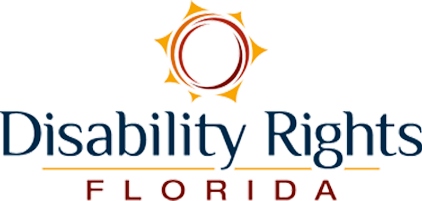For individuals who rely on public transportation, the ADA requires public transit systems be “accessible” to individuals with disabilities. This means an individual with a disability can get to a bus stop, board the bus and travel to the destination successfully. The ADA requires public transit systems, which provide fixed-route bus or rail services, also provide “complementary paratransit” services to individuals with disabilities who cannot, because of their disability, access the fixed-route system. Individuals with disabilities must apply and be determined eligible for ADA paratransit services. The eligibility determination process for ADA complementary paratransit is developed by the transit system in consultation with the local community.
Disability Resources by Category
Transportation
The Americans with Disabilities Act (ADA) of 1990 helps to protect the civil rights of individuals with disabilities, including the right to accessible and equal access to transportation. The following information provides a brief overview of various modes of transportation and provides links and resources for additional information.
Fixed Route/Paratransit
Medical
The Agency for Health Care Administration (AHCA), the administrator for Florida’s Medicaid program, oversees the services provided through Medicaid, which also includes transportation to medical appointments.
Commission for the Transportation Disadvantaged
The State of Florida’s Commission for the Transportation Disadvantaged (CTD) is an independent commission housed administratively within the Florida Department of Transportation. Their mission is to ensure the availability of efficient, cost-effective, and quality transportation services for persons who are “transportation disadvantaged”. Transportation disadvantaged are those who cannot obtain their own transportation due to a disability, age, or income.
- Additional information on the CTD
- The CTD Helpline can be contacted at 1-800-983-2435
Motor Coaches
With a 48 hours advance notice, the ADA requires all motor coach companies to provide services in an accessible vehicle to individuals with disabilities. A motor coach is also known as an “Over-the-Road Bus-(OTRB)”. A motor coach or OTRB differs from a fixed route (city) bus by its design as it typically has an elevated passenger deck located above a baggage compartment.
To obtain additional information on motor coaches, read Getting on Board: Facts for Customers of Motorcoach Service
Complaints with OTRB service should be directed to the United States Federal Transit Administration (FTA) either by phone at (888) 446-4511 or using the FTA website.
Demand Responsive Transportation (Taxis, Uber, Lyft, etc.)
Demand Responsive Transportation services provided by taxis, Uber, Lyft, etc. cannot discriminate against an individual person with a disability. For example, if a customer has a service animal, the driver must allow the service dog into their vehicle. If a customer uses a mobility device that can be stowed in the car, assistance with stowing the device is a reasonable accommodation.
Additional Resources:
Federal Transit Administration
The Federal Transit Administration (FTA) helps to ensure that public transportation systems provide accessible transportation services for individuals with disabilities. For general information visit the FTA website. To contact the FTA Headquarters in Washington DC, please call (202) 366-4043, or to contact Region 4 which includes the State of Florida call (404) 562-3500.
Rental Cars
Under Title III of the ADA, car rental companies must make cars with hand controls available upon advance request. As advance notice varies depending on the company, size, location, it is important to contact the car rental agency as soon as it is known hand controls will be needed.
Air Travel
The Department of Transportation regulation and implementation of the Air Carrier Access Act (ACAA) prohibits disability discrimination in airline services and travel.
Effective January 2021, the U.S. Department of Transportation revised the Air Carrier Access Act to define a service animal as a dog that is individually trained to do work or perform tasks for the benefit of a person with a disability and no longer considers an emotional support animal to be a service animal. Documentation may be required prior to traveling with your service animal and it is recommended you check with your airline for specific requirements.
The U.S. Department of Transportation’s Office of Aviation Enforcement and Proceedings Aviation - Consumer Protection Division accepts complaints pertaining to airline/consumer matters and maintains public information on aviation matters.
The Transportation Security Administration (TSA) strives to provide the highest level of security while ensuring that all passengers are treated with dignity and respect. To that end, TSA launched TSA Cares, a new helpline number designed to assist travelers with disabilities and medical conditions.
